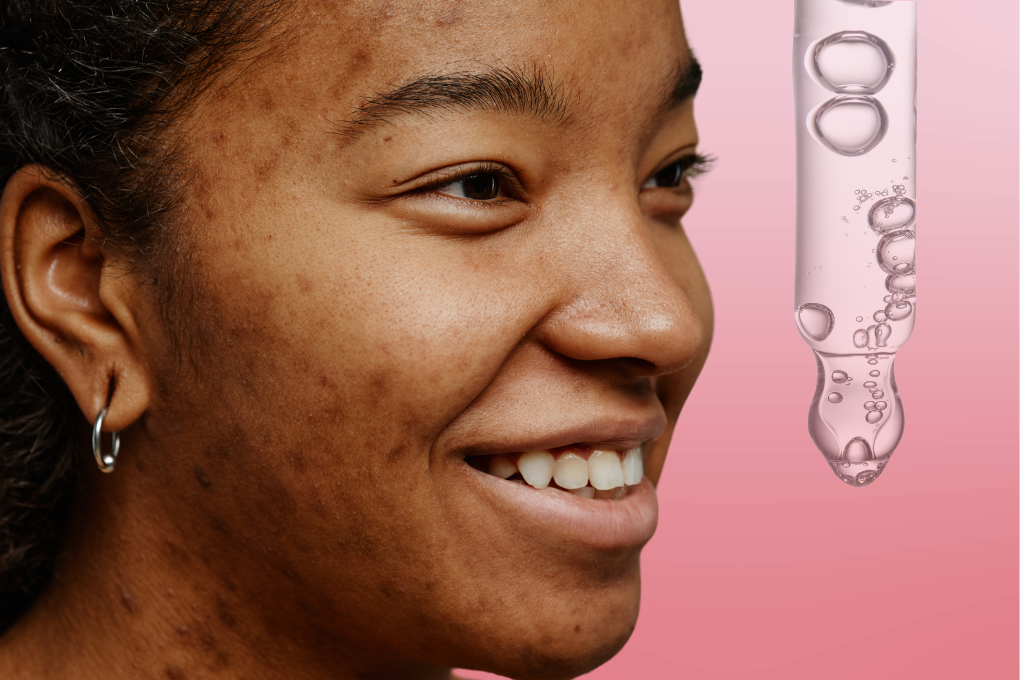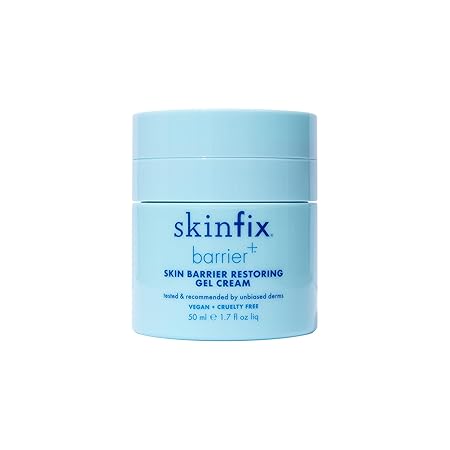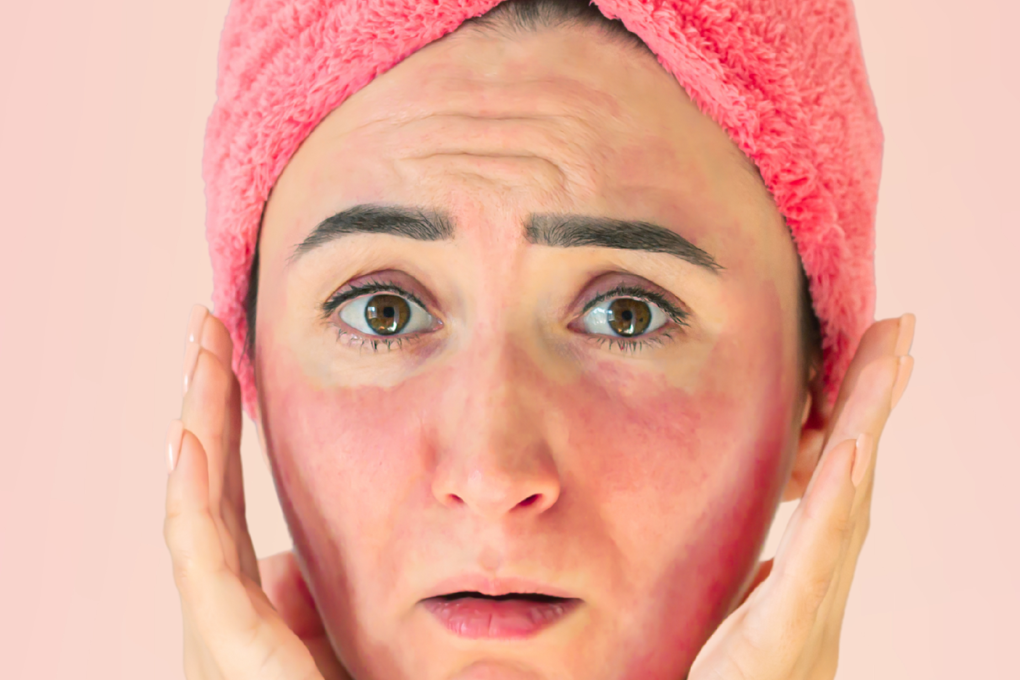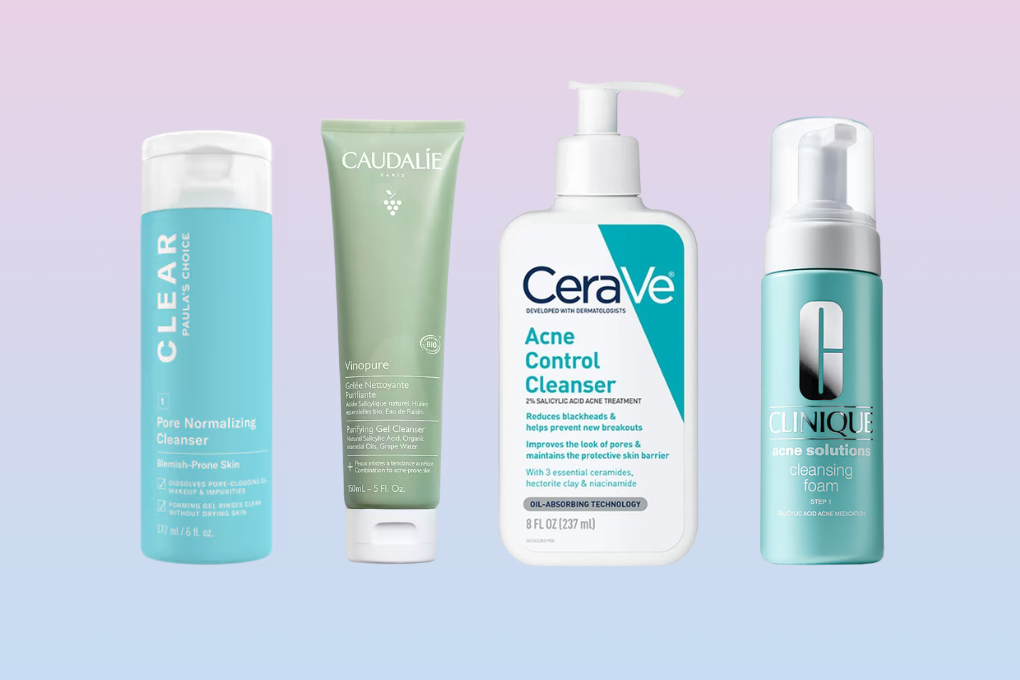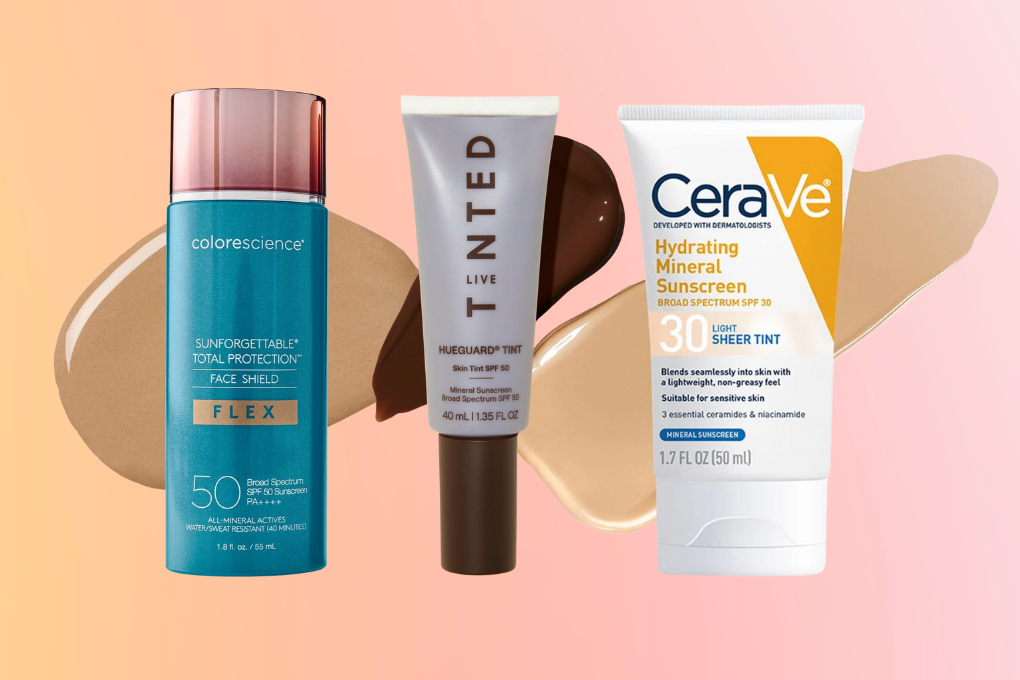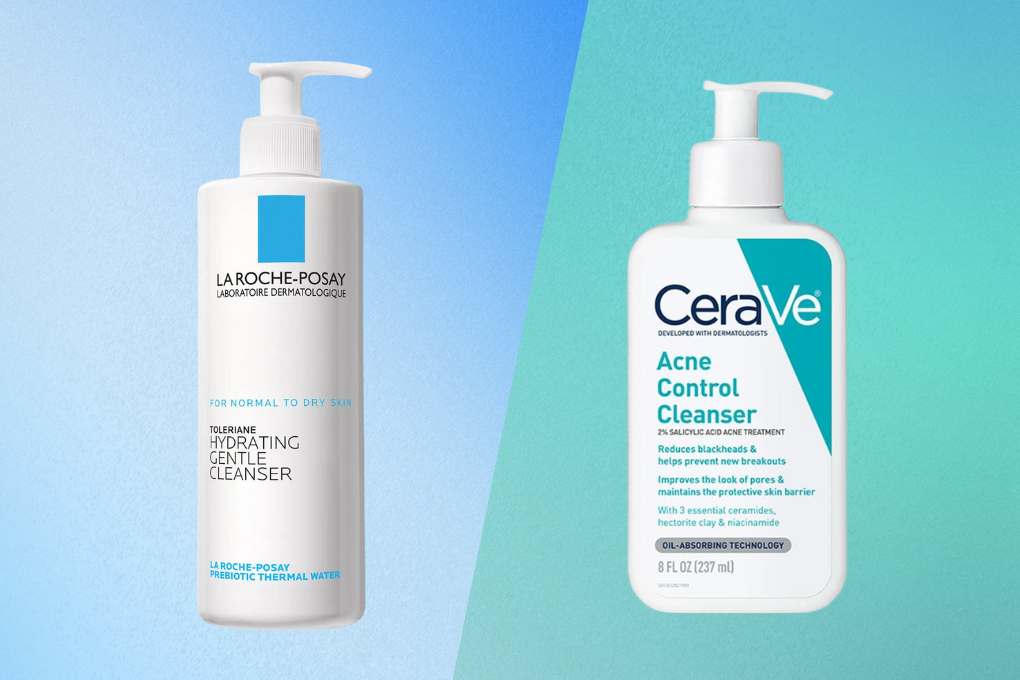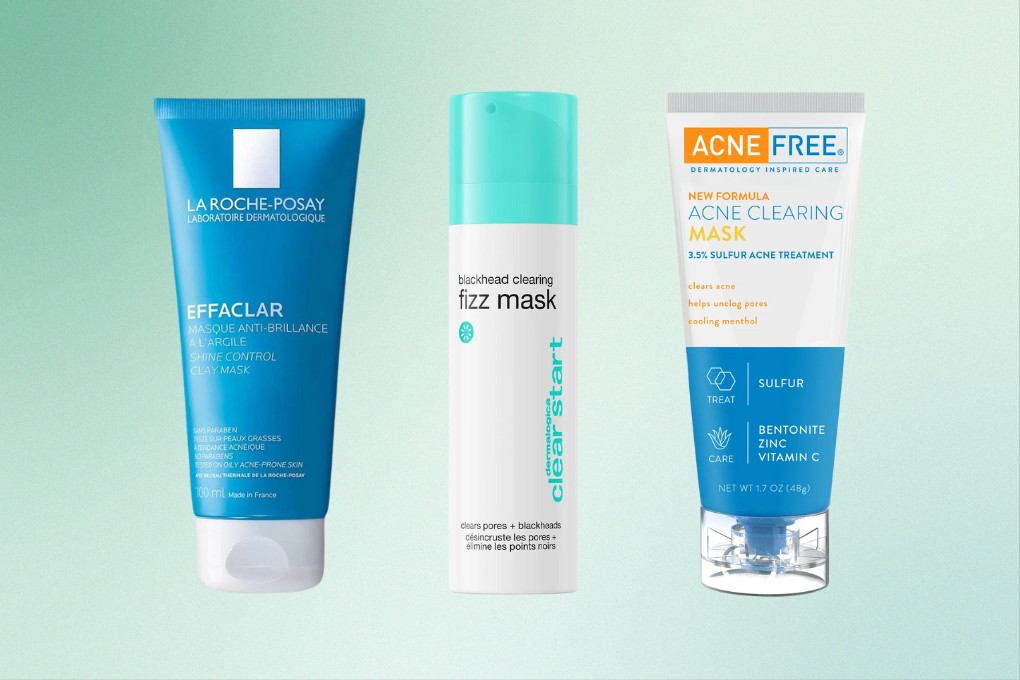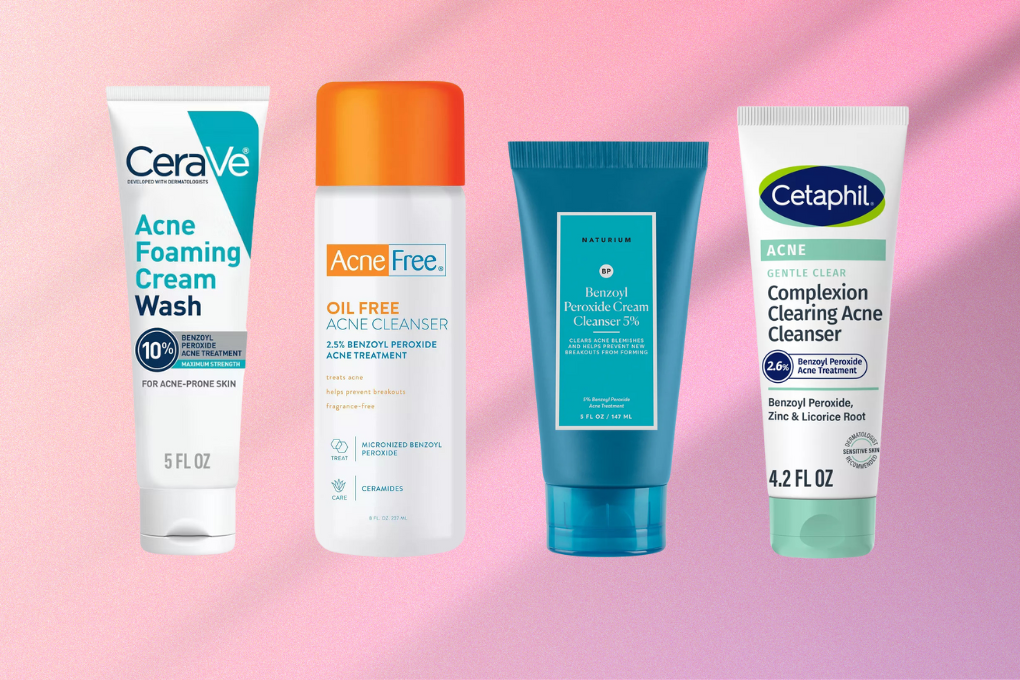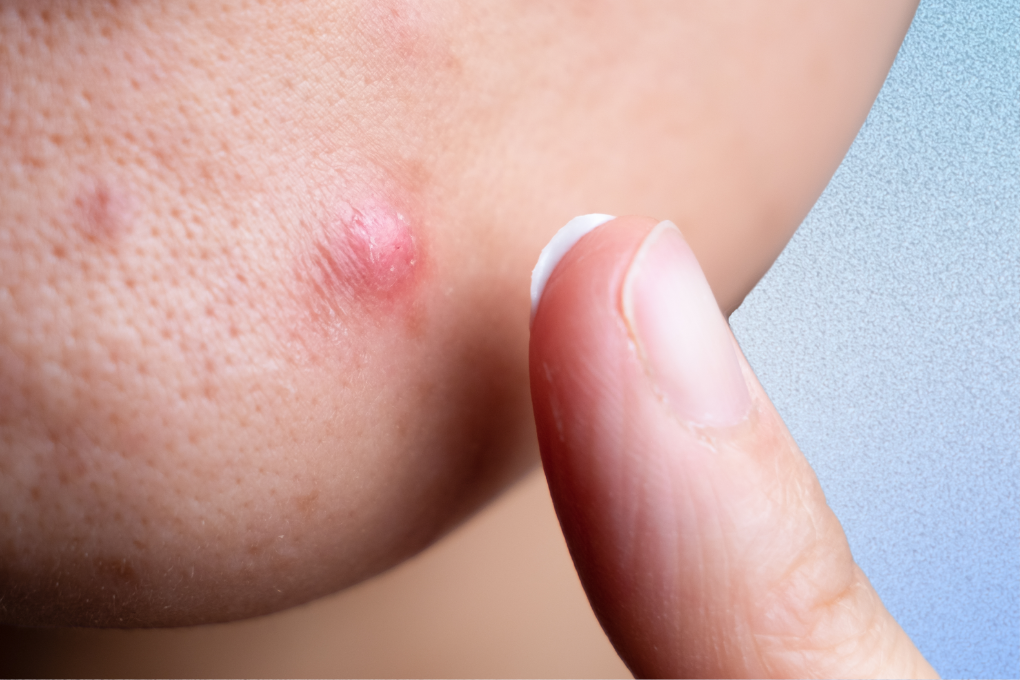- What is Niacinamide?
- What is Niacinamide Good For?
- Is Niacinamide Good for Acne?
- How to Use Niacinamide
- Best Niacinamide Products for Acne
- Does Niacinamide Help With Acne Scars?
- Can Niacinamide Cause Acne?
- Does Niacinamide Cause Purging?
- Is Niacinamide Good for Sensitive Skin?
- Can Niacinamide Be Used With Retinol?
- Can Niacinamide Be Used With Vitamin C?
If you make a habit of reading the labels of skin care products (a survival skill for many of us with acne-prone skin), you may have noticed that niacinamide is highlighted on products ranging from cleansers to serums to sunscreen… and even shampoo!
If you’ve been wondering what does niacinamide do and is it good for acne, keep reading for a full breakdown of this common ingredient.
What is Niacinamide?
Niacinamide, also known as nicotinamide, is a water-soluble form of vitamin B3 that plays a crucial role in maintaining healthy skin and overall body function. Unlike its other B3 counterpart niacin, niacinamide does not cause the skin flushing effect, making it a preferred choice in skincare formulations. It is known for its versatility and effectiveness in addressing a wide range of skin concerns.
What is Niacinamide Good For?
Niacinamide is a powerhouse ingredient found in many skincare products, from serums to creams. But what’s niacinamide good for? Let’s take a look.
Regulates Oil Production
Niacinamide helps balance the skin’s sebum production, making it particularly beneficial for oily or acne-prone skin. By regulating the amount of oil your sebaceous glands produce, it helps prevent clogged pores, reducing the likelihood of breakouts and giving the skin a more matte appearance.
Reduces Inflammation
Niacinamide possesses powerful anti-inflammatory properties that help calm the skin and reduce redness. This is why it is often found in products aimed at sensitive skin or inflammatory conditions like acne, rosacea, and eczema. It soothes irritation and helps alleviate the redness and swelling that accompany angry pimples.
Strengthens the Skin Barrier
One of the biggest benefits of niacinamide is its ability to enhance your skin’s barrier function. Your skin barrier locks in moisture and protects against irritants and bacteria. Niacinamide boosts the production of ceramides, essential lipids in the skin barrier that keep your skin hydrated and protected, helping to prevent acne flare-ups and irritation.
Fades Hyperpigmentation
Niacinamide can effectively reduce the appearance of dark spots, sun damage, and hyperpigmentation. It works by inhibiting the transfer of melanin to the skin’s surface, helping to even out skin tone and diminish the visibility of pigmentation issues.
Minimizes Fine Lines and Wrinkles
By stimulating the production of collagen and improving the skin’s elasticity, niacinamide helps reduce the appearance of fine lines and wrinkles. It supports the skin’s natural structure, making it firmer and more resilient, which contributes to a more youthful appearance.
Provides Antioxidant Protection
Niacinamide acts as an antioxidant, helping to protect the skin from oxidative stress caused by free radicals. This protection is crucial in preventing premature aging and damage from environmental factors such as pollution and UV radiation.
Is Niacinamide Good for Acne?
So, is niacinamide good for acne? Yes, can be! While not usually used as a front line acne treatment, niacinamide can be a great addition to your routine because it helps address many concerns of acne-prone skin.
Niacinamide regulates the skin’s oil production, which is a key factor in preventing clogged pores that can lead to new acne forming, making it a preventative measure against breakouts. Additionally, niacinamide has anti-inflammatory properties that help calm irritated skin and reduce the redness and swelling often associated with acne. This soothing effect as well as its ability to strengthen your skin barrier, keeping it better equipped to fight off acne-causing bacteria, helps to minimize the severity and duration of breakouts.
Niacinamide can also help acne-prone skin after a breakout by fading post-inflammatory hyperpigmentation, those dark marks sometimes left behind by pimples. It does this by inhibiting melanin transfer, leading to a more even skin tone over time. Using it early on a breakout can help fade these hyperpigmentation marks quickly.
How to Use Niacinamide
Finding products with niacinamide these days is relatively easy. It’s available in a variety of forms, from serums to moisturizers to pimple patches. Here are a few tips to make the most of niacinamide and avoid irritation:
Low Concentration
As niacinamide’s popularity has taken off, many brands have come out with products that contain 10% niacinamide or more. While niacinamide is generally well tolerated, these high percentages can irritate sensitive skin unnecessarily. Instead, try starting with a lower concentration of around 2-5%. Also, as niacinamide is added to more and more products, be careful that you are not unknowingly layering multiple products with niacinamide in your routine which together can end up being much stronger than you intended.
Start Slowly
Always perform a patch test before incorporating a new niacinamide product into your routine. Apply a small amount of the product to a discreet area such as the inside of your arm, and monitor for any adverse reactions over 24 to 48 hours. This helps prevent full-face irritation if your skin doesn’t tolerate it well.
Pay attention to how your skin reacts over time. Some people may find that their skin does not do well with niacinamide. If you notice persistent irritation or breakouts, consider reducing the frequency of use or consulting a dermatologist for personalized advice.
Use Consistently
Like any skincare product, consistency is key. Apply your niacinamide product daily or twice a day to see the best results. Patience is essential; it can take several weeks to see noticeable improvements.
Best Niacinamide Products for Acne
Niacinamide is included in many great products for acne-prone skin. Here are some of our favorite options with a lower concentration, but remember to start with only one niacinamide product in your routine.
EltaMD UV Clear Face Oil Free Sunscreen SPF 46 with Zinc Oxide and 5% Niacinamide
- Hybrid formula with micronized zinc oxide
- Lightweight and no white cast
- Not water-resistant
- Niacinamide might be irritating for some people
Good Molecules Niacinamide Brightening Toner with Vitamin C, 2% Arbutin, and 3% Niacinamide
Curology Dark Spot Serum with 1% Kojic Acid, 5% Niacinamide, and 3% Tranexamic Acid
Skinfix Barrier+ Skin Barrier Restoring Gel Cream with Peptides and 2% Niacinamide
Does Niacinamide Help With Acne Scars?
One of the most frustrating things about acne is the marks it can leave behind. True acne scars are changes in texture and unfortunately only professional treatments can really help.
However, many people are bothered by dark hyperpigmentation marks that are left on their skin after the pimple is long gone. These are not true scars but are still an unwanted remembrance of acne. Niacinamide helps fade this post-inflammatory hyperpigmentation by reducing pigmentation and evening out skin tone. Over time, regular use of niacinamide can help fade those annoying dark spots left behind by acne.
Can Niacinamide Cause Acne?
While niacinamide is generally well-tolerated, it’s possible that some folks may experience new acne. Anecdotally, there are some reports online of niacinamide, particularly in high concentrations, causing breakouts. To help avoid this, use only one lightweight non-comedogenic product with a low concentration of niacinamide in your routine to start and pay attention to how your skin reacts.
Some people might also experience irritation and redness when using niacinamide that might make existing acne look worse while not actually causing new acne. If you notice irritation or breakouts stop using the product and consult a dermatologist.
Does Niacinamide Cause Purging?
Purging refers to an initial breakout that happens when starting a new skincare ingredient, as it speeds up the skin’s turnover process. Niacinamide on its own does not increase cell turnover so it does not cause purging. However, if your niacinamide product also contains exfoliants or retinoids those ingredients may cause purging.
Is Niacinamide Good for Sensitive Skin?
Niacinamide is generally suitable for all skin types, but people with very sensitive skin might find it too strong. If you have sensitive skin, consider using a very low concentration or a formulation designed specifically for delicate skin.
Can Niacinamide Be Used With Retinol?
Yes, niacinamide can be used with retinol. In fact, this combination is often recommended because niacinamide can help mitigate the irritation that retinoids sometimes cause.
Can Niacinamide Be Used With Vitamin C?
Contrary to some misconceptions, niacinamide can be used with vitamin C. This combination can do double duty to help brighten the skin. However, if you have sensitive skin, you might want to use them at different times of the day or on alternating days to minimize any potential irritation.
Niacinamide is more than just a trendy ingredient; with its oil-regulating, anti-inflammatory, and barrier-strengthening properties, niacinamide can be a great adjunct to acne-prone skin care. Remember to introduce it slowly into your routine and with all the great niacinamide products out there, be careful to not overdo it.





